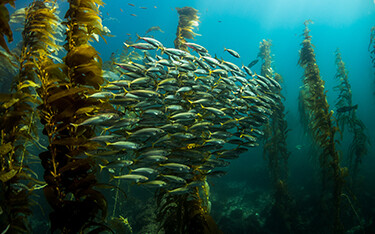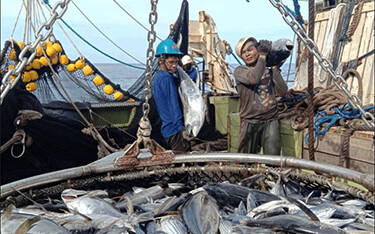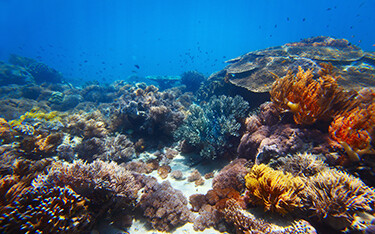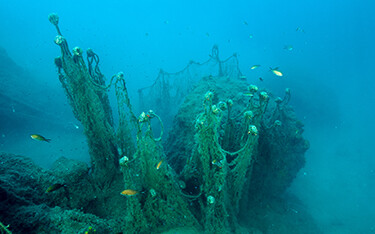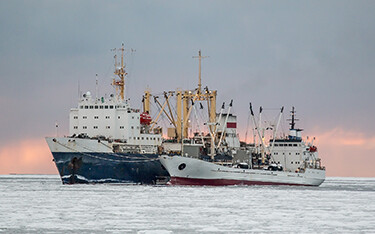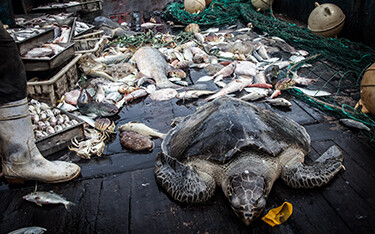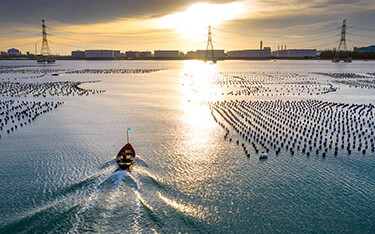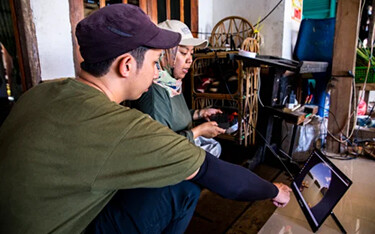Emma Desrochers is a freelance journalist based in Waialua, Hawaii, who writes about fisheries and sustainability. She graduated from Yale University in June 2021 with an undergraduate degree in environmental studies and mechanical engineering. She has contributed to the environmental conservation field through internships located in Ecuador, Thailand, and Hawaii.
Author Archive
Traditionally, retailers selling shelf-stable seafood products have limited their offerings to simple, unflavored cans of fish – primarily tuna – lacking the innovation that other food categories have been able to achieve.
Research on what seafood consumers value, such as the 2023 FMI Power of Seafood report, continues to indicate U.S. seafood shoppers prioritize quality, price, sustainability, convenience, and health, but
… Read MoreWild kelp forests help generate an annual average of USD 500 billion (EUR 456 billion) in global fisheries production, a study published in Nature Communications has found.
The study, “The value of ecosystem services in global marine kelp forests,” aimed to calculate the worth of this historically undervalued resource and emphasize its economic and ecosystem benefits.
“[The study is] meant to bring attention to an ecosystem
… Read MoreThis is part two of a two-part series on human rights abuses in the tuna industry. Part one explored the details of abuses uncovered by the report.
Human rights violations remain prevalent in the tuna industry, according to a recent report from BLOOM, a Paris, France-headquartered nonprofit.
The report, “Canned Brutality: Human rights abuses in the tuna industry,” details how many tuna products on European shelves stem from supply
… Read MoreThis is part one of a two-part series detailing human rights violations in the tuna industry. Part two explores BLOOM's calls to the industry and government for action.
Debt bondage, passport confiscation, as well as physical, sexual, and verbal abuse are just a few human rights violations that tuna companies are failing to address on their fishing vessels and in processing plants contributing to their supply chains, according to a new
… Read MoreSmall-scale fisheries in Africa and Asia, where accurate stock predictions are often too expensive to conduct, are underperforming relative to their maximum sustained yields due to undue strain from overfishing, a new study published in Marine Policy has found.
African countries, in particular, are becoming net importers rather than exporters as fishery yields are declining at an estimated 1 million metric tons (MT) per year. Human,
… Read MoreThe second of five planned meetings hosted by the Intergovernmental Negotiating Committee (INC) of the United Nations Environment Program (UNEP) to discuss global plastic pollution ended with greater emphasis and discussion on marine debris, including abandoned, lost, or discarded fishing gear (ALDFG) – also known as ghost gear.
The INC sessions aim to negotiate an international, legally binding plastics treaty, as global plastics
… Read MoreA group of 130 carrier vessels, overwhelmingly flagged to a small list of countries, are responsible for over 70 percent of transshipments around the world, according to recent Pew Charitable Trusts-funded research.
The report, published 19 April by the John Jay College of Criminal Justice at the City University of New York, studied 12,322 regional fisheries management organization (RFMO)-recorded transshipments, finding that 130 out of around
… Read MoreThe Sustainable Fisheries Partnership (SFP) and Purina Europe have recently partnered to launch the Bycatch Solutions Hub, a web-based platform that aims to connect seafood retailers and businesses with organizations capable of in-the-water solutions to reduce bycatch.
The goal of the collaboration, which the two organizations launched at Seafood Expo Global (SEG) in April 2023, is to decrease barriers preventing business and seafood retailers
… Read MoreBy 2050, there will be a 50-million-metric-ton supply deficit unless an additional USD 55 billion (EUR 51 billion) is invested in technology, according to Planet Tracker.
The London, U.K.-based nonprofit, which provides analytics on the role capital markets play in environmental degradation, released its “Avoiding Aquafailure” report on 11 May.
“Aquafailure is the inability of aquaculture to produce enough seafood –
… Read MoreThree crab landing sites in the province of Lampung in Sumatra, Indonesia, have implemented new technology to better monitor the activities of small-scale fisheries in the area.
The Environmental Defense Fund (EDF), with local partners in Indonesia and technological help from U.S. firms CVision AI, Teem Fish Monitoring, and Snap IT, developed a smart camera system in 2020 called SmartPass, an electronic monitoring approach focused on
… Read More







